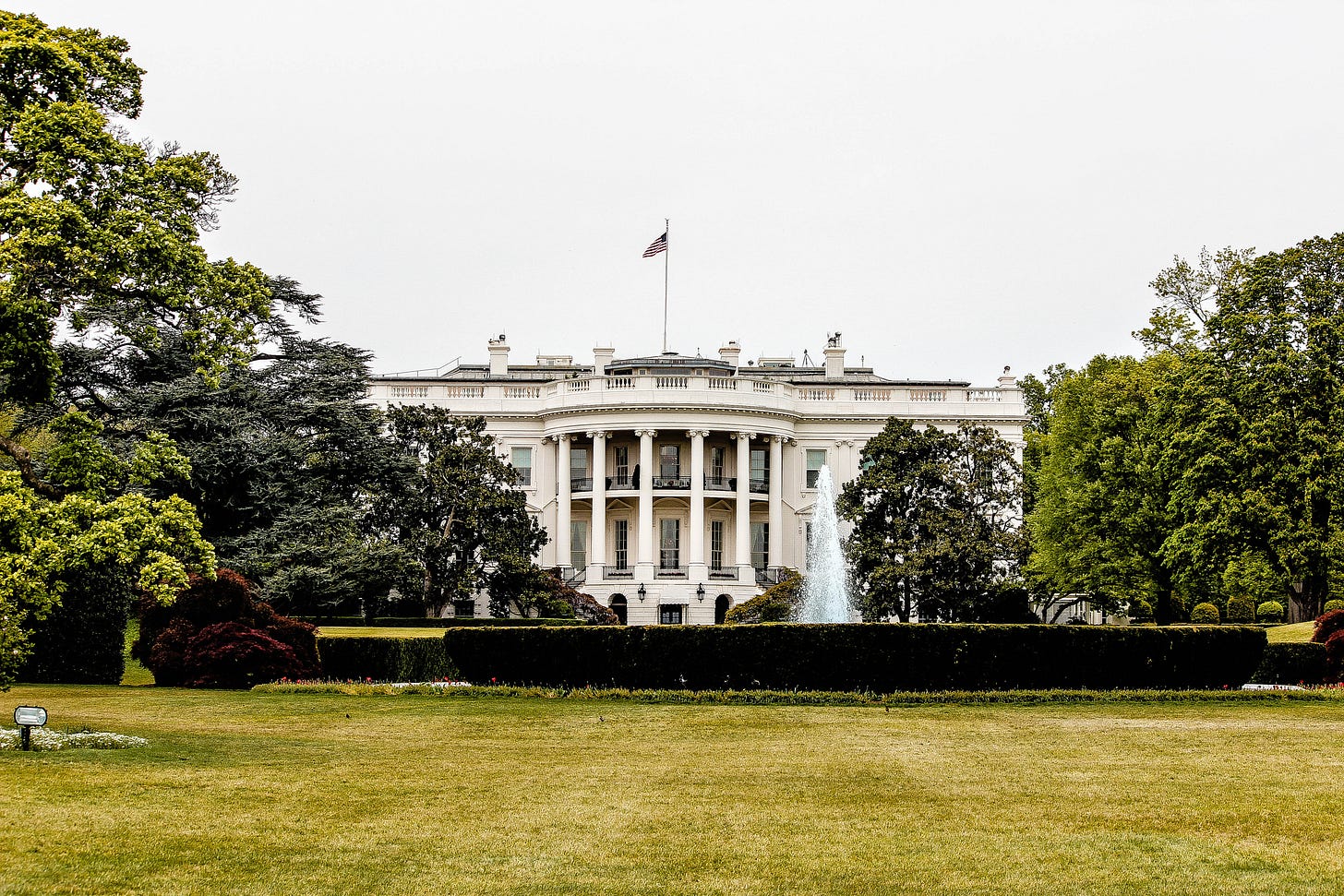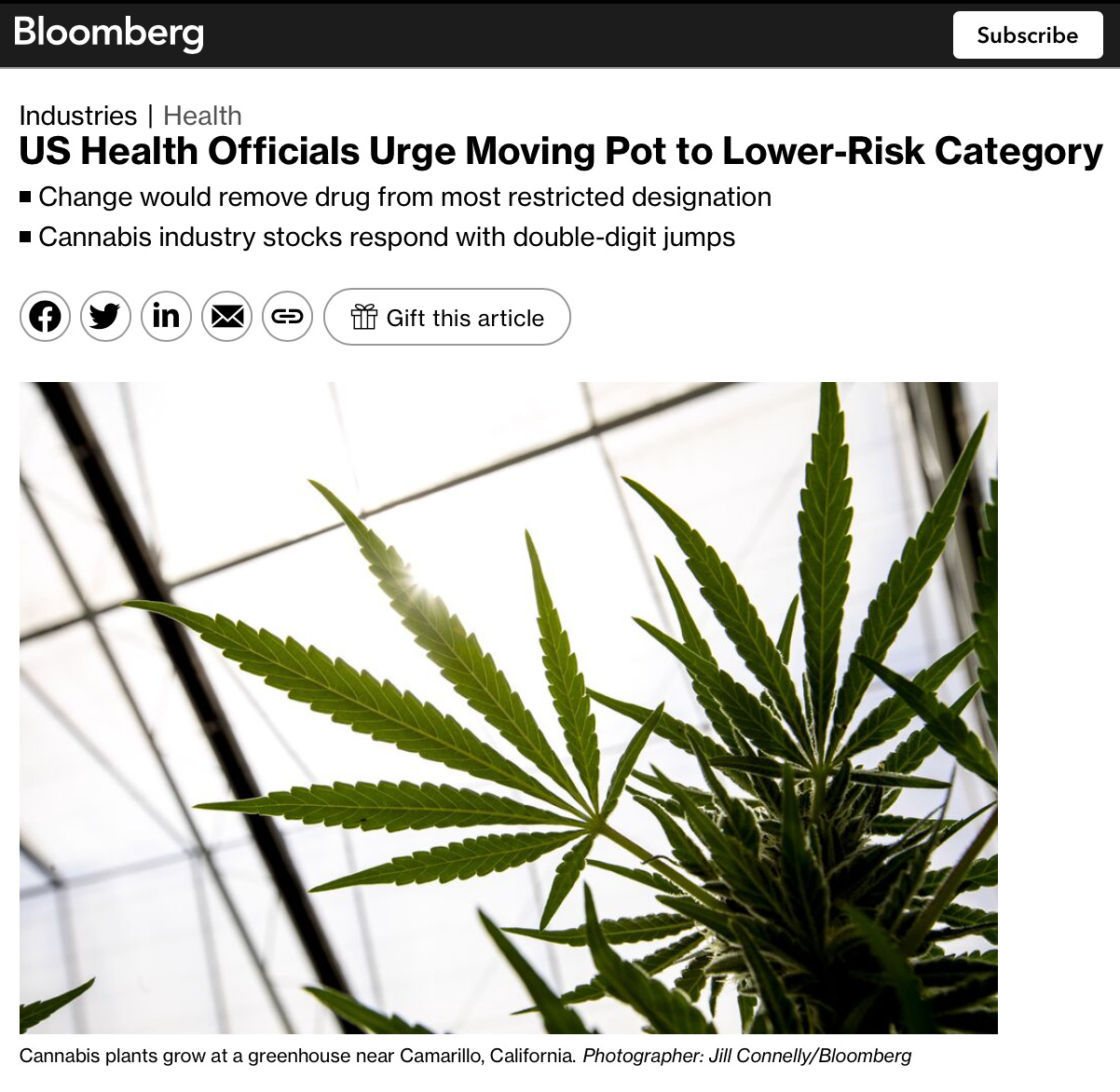Cannabis as a Schedule III drug?
The policy and politics around yesterday’s HHS announcement
Yesterday, news broke that U.S. health officials are recommending that cannabis be moved from Schedule I to Schedule III under the Controlled Substances Act.
Rescheduling requires DEA review and rulemaking to change existing regulations, which could take anywhere from 14 months to 2 years. In that time, there will be a lot of details to be worked out – like how this new drug market will interact with existing state cannabis markets. Plus, it’s likely that the Legislative Branch will want to weigh in as well.
Bottomline… it will be a while before we know exactly how this would affect cannabis markets, consumers and patients.
Regardless of where we go next, this announcement is a huge milestone.
The recommendation to move cannabis to Schedule III is an acknowledgement by the federal government that there are a medical uses for cannabis.
The letter was sent by the Department of Health and Human Services (HHS), based on an extensive review conducted by the Food and Drug Administration (FDA), and with agreement from the National Institute on Drug Abuse (NIDA).
Three different federal agencies – that haven’t previously been supportive of cannabis use – publicly acknowledged that cannabis is medicine. That affirmation alone is a BIG deal.
Medical cannabis patients may have the most to gain from rescheduling. State-by-state approaches to medicine create burdens for patients. Under the current system:
Medical marijuana cards are typically only valid in the issuing state, which means patients may not have access to medicine when they travel.
Oh, and patients might not be able to bring their medicine with them either. You can’t transport cannabis across state lines, and you can’t fly with it at all.
There are people, known as “cannabis refugees,” who have had to move to another state to get access to needed medicine.
Plus, insurance doesn’t cover doctor-recommended cannabis medicines.
Moving cannabis to Schedule III means cannabis patients would be treated like any other patient. It means greater standardization of products, more precise dosages. It also creates an obligation for doctors, nurses and pharmacists to be well-versed in its usage and effects (for both medical and recreational users), which would greatly expand the education that medical providers get about cannabis.
It would take time to see these benefits, though. A whole new supply chain would need to be established. And cannabis products may be required to go through some sort of drug approval process, which takes time and money.

Rescheduling wouldn’t resolve the conflicts that currently exist between state and federal law. Schedule III drugs are treated very differently than most of the state-legal cannabis markets. There are complex rules for their manufacturing, the businesses that handle them, the products themselves, and the manner of purchase. Almost none of the state cannabis laws align with these.
It's unclear how state cannabis markets would interact with – or even coexist with – a Schedule III drug market.
What does the transition from state-governed medical cannabis to Schedule III medical cannabis look like?
Can products that are currently sold in state medical markets be sold in the Schedule III cannabis market?
How will roles and oversight be divided between the feds and state officials?
Which laws would apply to state-licensed cannabis businesses? Federal drug laws or state cannabis laws?
Rescheduling cannabis would ease federal tax burdens for businesses. Section 280E of the U.S. tax code prohibits businesses that sell Schedule I drugs from deducting normal business expenses on their taxes.
That means cannabis businesses pay way more in federal taxes than other businesses. By some estimates, cannabis businesses (whether illegal or state-licensed) pay an effective federal tax rate of 70%.
280E was written to penalize drug traffickers (here’s a great read on the history of this law). But it also hurts state-legal cannabis businesses who already face challenges accessing normal financial services, including loans and investment.
Moving cannabis to Schedule III would eliminate that extra tax burden.
But, cannabis would still be criminalized. Schedule III drugs can carry misdemeanor or felony charges for citations like simple possession. Rescheduling does little to change the War on Drugs, unless those low-level charges are addressed.
It’s also important to note that pharmacies dispensing Schedule III drugs generally can’t employ people with a drug felony. This sets up a conflict with social equity initiatives which encourage ownership by and employment of those targeted by the War on Drugs
Yesterday’s announcement was a major milestone, but it left us with more questions than answers.
As with most topics in cannabis policy, the details will matter.
It will be interesting to watch how this unfolds.
Author’s Note:
It’s only been a week since we announced the launch of the Cannabis Policy Lab. And what a week it’s been!
Thank you to everyone who has expressed support for our mission. Thank you for subscribing to our newsletter. And thank you to the feds for news that reiterated just how important it is to understand the basics of cannabis policy.
We’ll try to keep these shorter in the future.
If you have any feedback on the newsletter or suggestions for future topics, email us at info@cannabispolicylab.com.
Was this article forwarded to you?


